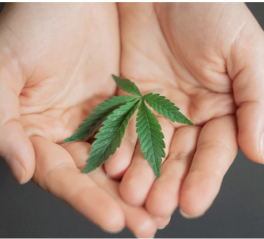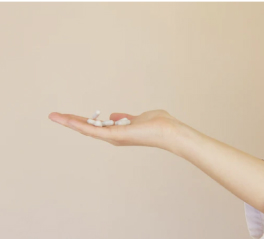FAQs
Are there any patients who should avoid cannabis treatment?
Cannabis medicine, as any other medication, is not appropriate for all patients, as for some the potential risks can outweigh the overall benefits. Research has identified the following as specific conditions/patient groups where medical cannabis treatment should be approached with caution or avoided entirely:
- Severe anxiety sufferers
- Patients with a psychosis, schizophrenia, or history of mental illness
- Patients with severe cardiovascular conditions
- Patients with respiratory diseases
- Patients receiving concomitant therapy
- Patients who are pregnant or breastfeeding
Can a patient consume a fatal overdose of cannabis medicine?
No. There are no recorded cases of a cannabis ‘overdose’ resulting in death.
Can cannabis consumption cause brain damage?
Research has proven that cannabis consumption does not result in damage to the brain.
Can medical cannabis infused edible oils be used in a vaporizer?
No. Edible infused oils are only are intended for oral ingestion. Attempting to vaporize edible oils can result in injury.
Can patients drive or operate machinery while taking medical cannabis?
Patients who use medical cannabis containing THC may experience dizziness, fatigue and difficulty concentrating. This can result in impaired judgement as well as difficulty in performing skilled tasks. Until a patient is aware of how they will be affected by medical cannabis products, they should avoid activities that depend on coordination, quick decision-making and remaining alert. People who frequently/routinely need to drive or operate heavy machinery should not use cannabis medicine as they are at a higher risk of having an accident.
Can patients travel and leave the country with their medical cannabis products?
No. Patients are not permitted to transport their medications over international borders, even when traveling to locations where these products are permitted for use.
Does medical cannabis have an expiration date?
Products currently available have a shelf life of 12 months.
Does medical cannabis have to be smoked?
No. Medical cannabis should never be smoked. Not only is smoking a poor delivery method for cannabinoids compared to other methods of consumption, but smoking also results in exposure to harmful carcinogens. Patients are advised to consume medical cannabis either via ingestion of infused oils, or through vaporization (depending on the products available in each market).
How is cannabis medicine different from illicit/recreational cannabis?
One cannot over emphasize the differences between the consumption of illicit street cannabis, and the use of regulated medical cannabis products under the care and supervision of qualified health care providers. Producers of cannabis medicine products are required to adhere to strict industry regulations and best practices standards. These include quality control and safety standards along with rigorous testing requirements for cannabinoid concentrations, pesticides, heavy metals and microbial contamination. The authorized access to regulated medical cannabis also gives patients access to the support and guidance of highly skilled medical professionals. Learn More
How should medical cannabis products be stored?
Medical cannabis products should always be stored in a cool, dry environment, out of reach of children. Products should always be kept in opaque airtight containers.
How will patients receive their medication?
Patients will purchase their medications directly from the product manufacturer and have it shipped to their home address.
Is cannabis medicine addictive?
Cannabis is not considered to be physically addictive like medications such as opiates. Research has shown that the addiction potential of cannabis is less than caffeine, nicotine, opiates and alcohol. However, frequent and sustained consumption of medical cannabis can potentially result in patients developing cannabis dependency. Particularly in younger patients and others who are prone to risk-taking behaviour.
Is cannabis medicine legal In India?
Currently there are no limitations regarding which conditions/symptoms medical cannabis products can be prescribed for in India.
The Narcotic Drugs and Psychotropic Substances (NDPS) Act specifically prohibits the utilization of cannabis plant flower and resin, creating an exemption the leaves and seeds of the cannabis plant. Since the leaves of the plant also contain cannabinoids like CBD and THC, the main psychoactive compounds known for their therapeutic benefits, this allows for the production of cannabis medicine products within an existing regulatory framework. As cannabis is recognised as a potent plant ingredient in Ayurveda, cannabis medicine has earned ratification from India’s he Ministry of Ayurveda, Yoga, Naturopathy, Unani, Siddha, Sowa-Rigpa and Homoeopathy (AYUSH).
N.B. – AYUSH regulations recognise whole plant medicinal extracts and also specify methods of extraction for manufacturing plant-based medicines, which regulated manufacturers must adhere to. For this reason, simple copying and prescribing of international medical cannabis form factors may be disallowed.
Is there clinical evidence to support the use of cannabis medicine?
The safety and efficacy of medical cannabis treatment has been established in robust and ongoing clinical research. Learn More
What are terpenes, and do they have any therapeutic value?
Terpenes are essential oil compounds excreted through glands of the plant and are responsible for the diverse range of scents and flavours found in cannabis. The cannabis plant utilizes these terpenes to protect against disease, and repel animals/insects. Over 200 terpenes have been identified in cannabis alone. Terpenes are responsible for some of the differing effects experienced when using various cannabis products, such as whether they feel stimulating or sedating. Other therapeutic potentials of terpenes include: Alertness Analgesic Anti-Anxiety Antiacne Antibacterial Antibiotic Anticarcinogenic Anticonvulsant Antifungal Anti-Inflammatory Anti-Irritant Antimalarial Antimicrobial Antioxidant Antiseptic Antitumor Anxiolytic Appetite Suppressant Bronchodilator Depression Relief Elevated Mood Gastroprotective Memory Retention Muscle Relaxant Sedation Stress Relief Ulcer Improvement Learn More
What are the active components in cannabis medicine?
The most commonly used therapeutic components of cannabis are the cannabinoids Tetrahydrocannabinol (THC) and Cannabidiol (CBD).
THC – This cannabinoid has the potential to cause intoxicating effects and therapeutically has been noted to help manage symptoms such as:
- Chronic Pain
- Depression
- Insomnia / Sleep Disorders
- Muscle Spasticity
- Nausea
- Poor Appetite
- Anxiety
- Chronic pain
- Depression
- IBD
- Inflammation
- Migraines
- Seizures
- Sleep Disorders
What are the common symptoms and conditions for which patients are prescribed medical cannabis treatment?
Common conditions and/or symptoms for which medical cannabis treatment is prescribed include:
- Acute Pain
- Amyotrophic Lateral Sclerosis (ALS)
- Anxiety
- Arthritis
- Attention Deficit Hyperactivity Disorder (ADHD)
- Autism Spectrum Disorder (ASD)
- Autoimmune Disorder
- Bipolar Disorder
- Cachexia / Poor Appetite
- Cancer Related Pain
- Chronic Fatigue
- Chronic Pain
- Crohn's Disease
- Depression
- Endometriosis
- Epilepsy
- Fibromyalgia
- Headache / Migraines
- HIV / AIDS
- Inflammatory Bowel Disease (IBD)
- Irritable Bowel Syndrome (IBS)
- Inflammation
- Insomnia / Sleep Disorders
- Menstrual Pain/Cramping (Endometriosis)
- Mood Disorders
- Multiple Sclerosis (MS)
- Muscle Spasticity
- Nausea and Vomiting
- Neuropathic Pain / Nerve Damage
- Palliative Care
- Parkinson’s Disease
- Polycystic Ovary Syndrome (PCOS)
- Post Traumatic Stress Disorder (PTSD)
- Seizure Disorders
- Spinal Injuries
- Stress
What are the possible side effects or adverse events associated with cannabis medicine use?
An excessive dose of THC can potentially result in mild to moderate side effects including:
- Anxiety
- Chest Pain
- Confusion
- Dizziness
- Drowsiness
- Dry mouth
- Fainting
- Fatigue
- Headache
- Impaired Short-Term Memory
- Nausea / Vomiting
- Overwhelming Euphoria
- Paranoia
- Psychotic Episode (in individuals with a predisposition).
- Rapid Heartbeat (Tachycardia)
- Shallow Breathing
- Time-Distortion
- Somnolence
- Amnesia
- Cough
- Nausea
- Dizziness
- Euphoric Mood
- Hyperhidrosis
- Paranoia
What is the ‘entourage effect’?
When the active components of cannabis are consumed together (cannabinoids, terpenes, terpenoids, flavonoids) they work synergistically providing a greater therapeutic effect than can be achieved from each component individually. This is referred to as the ‘entourage effect’.
What should a patient do if they experience side effects or an adverse event?
Patients should be advised to remain calm. The effects of medical cannabis will fade over time, usually between 2 (when inhaled), and 10 hours (when ingested). It is important to remember that there are no recorded cases of a cannabis ‘overdose’ resulting in death. Learn More
Will cannabis medicine interact with other medications?
Cannabis can interact with a number of other drugs and herbal wellness products. Patients should be particularly cautious when also taking any medications that cause drowsiness, or medications that inhibit CYP isoenzymes (potentially increasing the bioavailability of THC). Patients should be cautious when using cannabis along with other medications such as:
- Allergy Medications
- Amiodarone
- Antibiotics
- Antidepressants
- Antifungals
- Antimycotics
- Antiretroviral Drugs
- Calcium Antagonists
- Cimetidine
- Cold Medications
- Heart Medication
- HIV Protease Inhibitors
- Isoniazid
- Macrolides
- Narcotic Pain Medications
- Proton Pump Inhibitors
- Sedative-Hypnotics
- Seizure Medications
- Sleeping Aids
- Stomach Acid Inhibitors
Will medical cannabis make patients feel ‘high’ or otherwise intoxicated?
Patients can achieve symptom relief without having to experience the side effects of excessive euphoria or ‘high’. THC when used in low to moderate doses will not result in euphoria in most patients. Patients can also use CBD in combination with THC in order to reduce the potential of excessive euphoria. When used alone, CBD does not result in intoxication at any dosage.
Do you have other questions?
Please submit any additional questions you may have.
Our team will do their best to provide the answers you are looking for.





